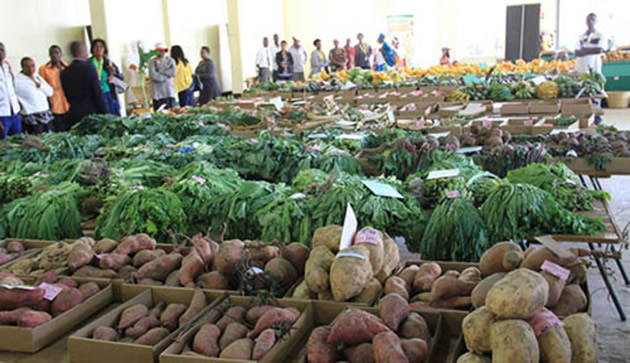ZAS adopts climate resilience concept

Currently, climate resilience efforts encompass social, economic, technological, and political strategies that are being implemented at all levels of society. From local community action to global treaties, addressing climate resilience has become a priority, although it could be reasonably argued that a significant amount of the theory has yet to be translated into practice.
The Zimbabwe Agricultural Show Society has adopted climate resilience as a theme for this year’s week-long agricultural show.
The 2016 theme; “Climate Resilience: The New Agricultural Frontier” was chosen with a view to rally individual and collective efforts towards the concept.
Actions that bolster climate resilience will undoubtedly enhance the adaptive capacity of social, industrial, and environmental infrastructures and mitigate the effects of climate change.
Building climate resilience systems is highly complex and requires a comprehensive undertaking that involves an eclectic array of actors and agents: individuals, community organisations, micropolitical bodies, corporations, governments at local, state, and national levels as well as international organisations.
In a statement, ZAS said: “Thus like all issues with a global impact, individual and collective efforts are required to ensure that there is additivity and synergy to compound our efforts and impacts because when everything is connected everything is vulnerable. Our success shall be the true testament of assiduous and painstaking efforts by all. We need to act now.”
The issues of climate resilience have emerged as necessary and survival rallying points of convergence since the 1990s.
Considering the global implications of the impacts induced by climate change, climate resilience has become a critical concept that scientific institutions, policymakers, governments, and local and international organisations have begun to rally around as a framework for designing solutions that will be needed to address the effects of global warming.
With the rising awareness campaigns on climate change impacts by both national and international bodies, building climate resilience has become a major goal.
ZAS said the key focus of climate resilience efforts is to address the vulnerability that communities and countries currently face from the environmental consequences of climate change.
Currently, climate resilience efforts encompass social, economic, technological, and political strategies that are being implemented at all levels of society.
From local community action to global treaties, addressing climate resilience has become a priority, although it could be reasonably argued that a significant amount of the theory has yet to be translated into practice.
“Despite this, there is a robust and ever-growing movement fuelled by local and national bodies alike, geared towards building and improving climate resilience. There is increasing consciousness that we need to act ahead of solid scientific evidence, although evidence-based decisions will be required to re-mould, re-shape and redefine and increase our acuity of focus and actions in the years ahead,” said ZAS.









Comments